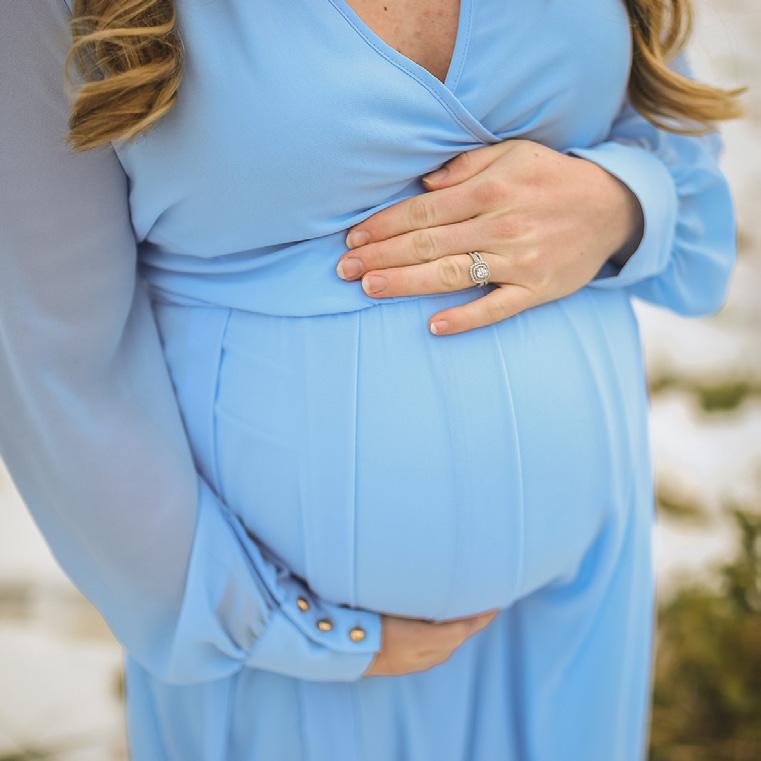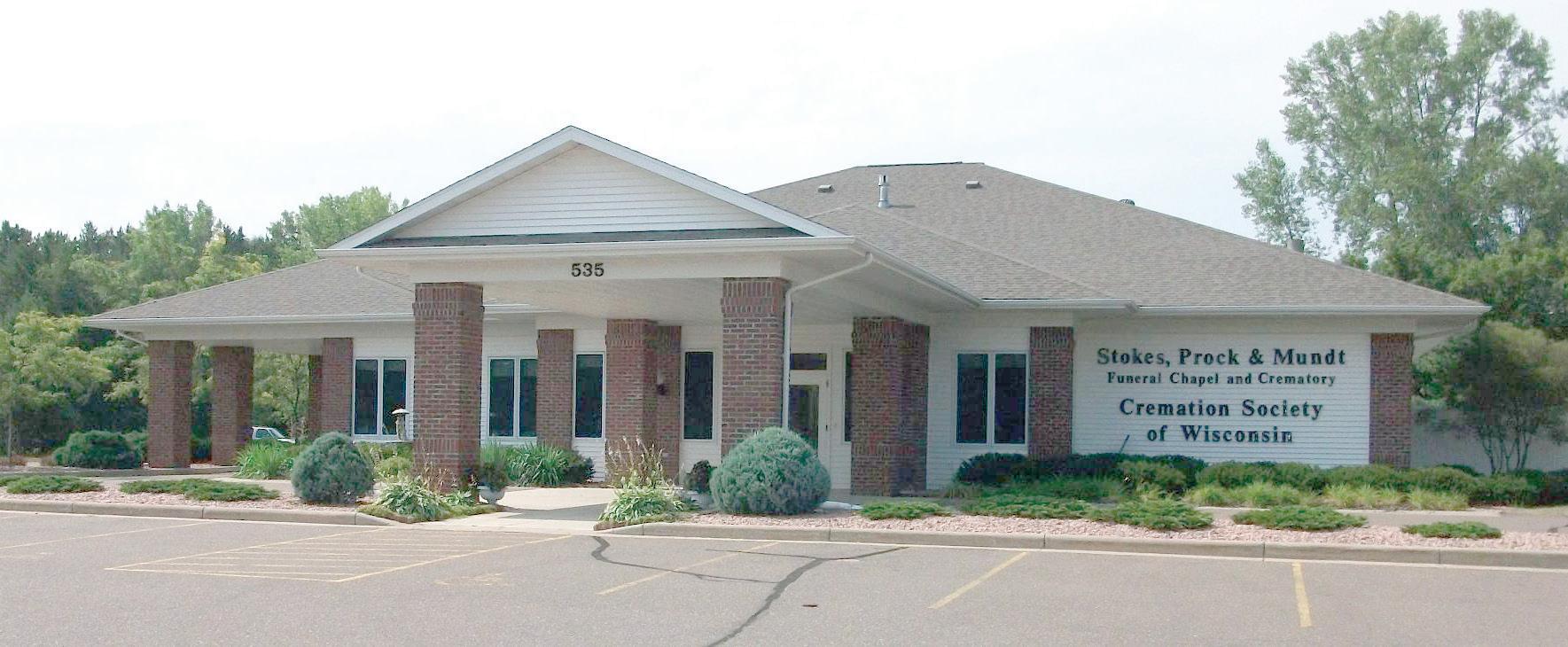
11 minute read
Nutrition During Pregnancy
When it comes to nutrition and pregnancy, it often feels like recommendations are all over the map. And when you’re feeling great one second to feeling terrible the next, many of the expert suggestions can feel daunting and stressful: Am I getting enough? Am I getting too much? Can I eat this? Can I drink that?
Anna Maria Siega-Riz, Ph.D., is the dean and professor of nutrition, biostatistics and epidemiology in the School of Public Health and Health Sciences at the University of Massachusetts, Amherst—in other words, she knows her foods and nutrients. Siega-Riz was part of the committee that prepared the 2020-2025 Dietary Guidelines for pregnant women. She states that while taking supplements is fine and dandy, it’s the food that we eat that really provides the nutrients we need.
Advertisement
The following six nutrients at the top of the list for expecting mothers, as well as the daily amounts needed and the foods that contain them.
1. Choline (450 mg) – Eggs, edamame, lean beef, chicken, mushrooms, kidney beans
Choline helps make acetylocholine, a chemical in the brain that has been linked to increased brain function in babies. In a few small studies, infants born to mothers who ingested the proper amount of choline during pregnancy displayed better attention and quicker reaction time between five and 13 weeks of age.
One egg yolk has 169 mg of choline.
2. Omega-3 fatty acids (250-300 mg DHA) – Salmon, seaweed and other seafood
Omega-3s in the form of DHA and EPA (not ALA, which has no known benefits for pregnancy) are components of cell membranes and are important for reducing inflammation and oxidative stress. Pregnant women who consume omega-3s have a lower risk of preterm birth, and newborns a lower risk of perinatal death (within 7 days of birth) as well as fewer instances of neonatal care needs and low birth weight.
4 oz of salmon provides 476 mg of DHA and EPA. Seafood is notorious for being on the “Be Safe, Do Not Eat” list. But small amounts of smaller fish like salmon, herring, pacific oysters and trout are OK. If you’re not a fish person, ask your practitioner about a fish oil supplement.
3. Folate (600 mcg) – Spinach, Brussels sprouts, avocado, black-eyed peas, fortified breakfast cereals, asparagus
Folate helps prevent neural tube defects. Finding enough folate in foods is tricky, which is why many practitioners recommend taking a folic acid supplement. Women on diets full of whole grains, or low carbohydrate diets such as keto, will also have a harder time getting those folic-acid-fortified foods.
½ cup of cooked spinach contains 130 mcgs of folate.
4. Iron (27 mg) – Lean red meat, fortified breakfast cereals, clams, oysters, spinach, lentils, dark turkey and chicken meat, white beans
Oxygen is delivered throughout the body via the hemoglobin protein found in red blood cells. Iron assists with creating enough hemoglobin for the body to do its job. However, the pregnant body is creating another body, and therefore needs more oxygen, hemoglobin and iron. It is said that expecting mothers need 50% more iron than non-pregnant women.
Iron-deficient women have a higher risk of preterm delivery and babies with low birth weight. Moms are also often tired (more so than “normal”) and have higher instances of “brain fog” associated with anemia.
3 oz of lean red meat provide 2 mg of iron. Most experts recommend limiting red meat intake to once per week, so supplement with other sources as needed.
5. Vitamin D (15-50 mcg) – Milk, salmon, tuna, fortified orange juice, yogurt, eggs
Vitamin D helps the body absorb calcium and form bone, and is important for eyesight and skin health. Various studies have also linked vitamin D to lowering risk of preeclampsia, gestational diabetes, and low birth weight by 50% each, and reducing the risk of fetal or neonatal mortality by 65%.
1 cup cow’s milk has 3 mcg, 3 oz salmon has 13 mcg. Additionally, soaking up sunlight is a great way increase vitamin D production.
6. Iodine (220 mcg) – Table salt, cod, tuna, seaweed, shrimp, many dairy and grain products
Thyroid hormones rely on iodine. In the everyday body, thyroid hormones assist with metabolism, but for the pregnant woman, they also assist with fetal central nervous system and skeletal development. The woman who doesn’t get enough iodine in her diet could produce a baby with intellectual impairments.
¼ tsp table salt (25% of your daily sodium limit) has 71 mcg of iodine. Salt has gotten a lot of flack in the American diet in the past several years, but it is actually beneficial for the body. Just make sure to ingest the right kind of salt—with iodine.
Source: Gorman, Rachael Moeller. “Nutrition Bump.” Eat Well. May 2020. 94-100. Call The Health Office Co. at 715-895-8571 to make an appointment or with questions
Total cost is $80 for a basic Myers
Additional Vitamin C is $9.50 per additional 5 grams Glutathione is $55
Individuals will not be seen for office visit to discuss health problems. Compared to usual cost for Myers, no other health problems: Office visit $72 plus base cost of Myers $62 (range is $62-123) = $134. You save $54.
ACUPUNCTURE
FOR WELLNESS
Acupuncture that Works!!
Specializing in pain management Nine different styles of acupuncture & styles that do not use needles
Custom herbal formula | Senior, student & veteran discounts Treatments can start as low as $30 | Online scheduling
Eau Claire 705 S Barstow
Street, Ste A
715.379.6429 Menomonie
3120 Schneider Avenue SE
715.232.8858 Bloomer
1706 York Street Plaza
715.568.5173
Casey Castona
Acupuncturist, M.S.O.M., LAc, Dipl.AC., B.S. in Nutrition, C.A.
www.ac4wellness.com
Supplements for Pregnancy
You want to have the best diet possible, but your pregnant body might have other plans—morning sickness, food aversions, food cravings. And try as you might, it’s very difficult to get absolutely everything you and your baby need during pregnancy through diet alone. Supplements are key.
Purchase a prenatal vitamin. And a good one—not all vitamins are created equal. Do your research and choose a brand that has everything you need. In addition to vitamins A, E, B6, B12, C, calcium and zinc, your prenatal should contain folic acid, iron and vitamin D. Typically capsules are superior to tablets as they dissolve more quickly and evenly.
Speak with your doctor to make sure you are receiving the proper amounts of nutrients through a combination of diet and supplements. If you are on any type of restrictive diet by either choice or necessity, additional supplements may be required for healthy fetal development. Also, some prenatals don’t necessarily contain everything the pregnant body needs, such as omega-3s, iodine and choline.
Ideally you should start taking a prenatal about three months before you become pregnant. Prenatals provide many nutrients that are beneficial in the very early weeks of fetal development, but it can take weeks for the body to build up these nutrients before they are effective.
Tips and tricks if your prenatal is making you nauseous: - Eat first, then take the vitamin - Try taking it at night so you can sleep through the nausea - Blend it into a smoothie so it dissolves gradually with your food

Source: Gorman, Rachael Moeller. “What to Know about Supplements.” Eat Well. May 2020. 98.
Ihave been a funeral director for almost 50 years and have served pretty much every type of family with every type of loss. By far, the most difficult is serving parents that have lost an infant. From the time we receive the call, the pain and shock is palpable. There are no words to comfort the parents. Sometimes it is due to illness that the parents were aware of, and other times it is sudden with no apparent explanation. Grief however does not discriminate in the cause of the loss.
Back in the 1970s, SIDS deaths were much more common than now. SIDS stands for Sudden Infant Death Syndrome. It is also sometimes called crib death. Otherwise healthy infants would experience a slight cold (or no symptoms at all) and would die in their sleep. The infant would usually be a year or less. Fortunately, over the years, the SIDS rate has declined. Regardless of when, where, or why, infant loss is devastating. I would like to share a story about such a case.

Let’s call them John and Mary. They were a very nice young couple in their early twenties having their first baby. When their adorable little boy was about eight months old, they found him deceased one morning in his crib. Back then everyone who died was embalmed, including infants. Cremation was less than 5% and no one chose cremation for their baby. When I sat down with parents to make funeral arrangements, I could see their grief was very intense. They were in shock. I could already sense that somehow they were blaming each other. The day of his burial, I asked Mary if she wanted to hold her son. She asked “Can I?” Mary held him for a while and we placed him back in the casket. We then proceeded to the cemetery for his graveside service. The grief of losing a child is so profound that parents carry a portion of that their whole lives. In this case, their marriage ended shortly after. About a year later, I was called to the scene of a car accident where the driver did not survive. It was a single car that went off the road and almost into the lake. I walked down the hill and looked in the car, and there was Mary. There was a strong smell of alcohol. She had become so overwhelmed with the grief of losing her child that she just couldn’t keep her life together anymore. Grief can be a killer.
It’s important to understand that the grief of losing a child is like no other. There is a saying that goes, “A child that loses its parents is called an orphan, but there is no word for a parent that loses their child.” The pain is indescribable. Having these experiences over and over again led to my philosophy in the funeral business that we will never charge for our services in the death of a child. I could not sleep at night if I ever profited from a child’s funeral. I always had a dream of starting a nonprofit to help these families, even if they did not choose our funeral home (as not all have our “no charge for children” philosophy). Out of this desire, Helpful Hearts Foundation was born. It is a 501(c)(3) organization that, through fundraising and direct donations, provides financial assistance to families that have an unexpected loss and may not have the means to cover the required costs. I feel we can never do enough for a family that has lost their child. If you have experienced such a loss, please reach out for help. Don’t try to handle this kind of grief on your own.
What To Do For Parents Who Lost Their Child?
Let’s talk a little bit about what to do for parents who have lost a baby or child other than giving them a gift. Because remember, gifts show that you care, but they aren’t essential.
Some of the most important things to do include:
• Offering a safe space to shed tears, feel pain, talk, or reminisce • Don’t expect the grief to disappear, or even lessen.
It will likely get worse for a while. • Support or help organize a memorial project–a fundraiser, an event that remembers the lost child, etc. • Be present long-term, not just short-term. After parents lose a child, they’ll have an immediate influx of love and support. But over time, that support begins to fade. While we strongly recommend keeping the support going longterm, it’s also important to remember special occasions that will be hard for the parents. Their child’s birthday, for instance, family holidays, and the anniversary of their child’s passing, will be especially difficult days. It only takes a moment to plug those reminders into the calendar on your smartphone.
When you get that alert, place a card in the mail and know that the parents you are supporting will feel very, very loved in that moment.
Source: https://undefiningmotherhood.com/14thoughtful-gifts-for-parents-who-have-lost-a-baby/

Our staff is here to guide and assist you with a high degree of respect and concern during your time of loss. We will provide the most fitting service for your individual needs, at the most affordable cost with the many options that we offer.
Two options to serve you, at one convenient location:
Stokes, Prock & Mundt

FUNERAL CHAPEL
Even the smallest touch can make a big difference in personalizing your funeral services. There’s no right or wrong when it comes to celebrating your loved one and honoring their life, accomplishments, and individuality. 715-832-3428 | stokesprockandmundt.com
Cremation Society of Wisconsin
We offer a full range of cremation options. We have our own on-site crematory and a full staff to assist you with whatever your needs may be.
715-834-6411 | cremationsociety-wi.com Do you need help paying for burial or cremation expenses for your loved one?


Helpful Hearts Foundation was created by the staff of Cremation Society of Wisconsin and Stokes, Prock & Mundt Funeral Chapel, to help low-income families who have experienced the death of a loved one, to pay for funeral expenses. While the primary purpose is to help with the loss of a child, the application processs is open to anyone in financial need, for final expenses in Eau Claire and surrounding counties. We are reaching out to help our community, during their time of greatest need.
For more information on the application process, or to make a monetary donation to this 501(c)3 non-profit organization, please visit www.helpfulheartswi.org.










